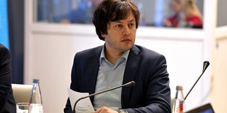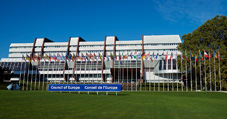
Irakli Kobakhidze elected as Vice-President of Parliamentary Assembly of the Council of Europe
By Nika Gamtsemlidze
Tuesday, January 28
Former Parliament Speaker and Majority Member Irakli Kobakhidze has been elected as Vice President of the Parliamentary Assembly of the Council of Europe. Election of Kobakhidze as Vice President of the Parliamentary Assembly of the Council of Europe (PACE) was voted on yesterday, January 27, at the Council of Europe winter session.
Kobakhidze replaced Tamar Chugoshvili, a former member of the parliamentary majority in the Parliamentary Assembly. The delegation of Georgia to the Council of Europe has also been renewed. The Georgian delegation includes Irakli Kobakhidze, Irakli Beraia, Kakhaber Kuchava, Nino Tsilosani and David Bakradze.
Georgia became the chair of the Committee of Ministers of the Council of Europe on 27 November 2019 and will be until 15 May 2020. Georgia has taken over the presidency from France in the Latin alphabetical order.
According to the Ministry of Foreign Affairs, Davit Zalkaliani, Georgia has four priorities for the Presidency of the Council of Europe: Human rights and environmental protection; Civic engagement in decision-making; Child-centered justice - European experience in restorative justice and Strengthening democracy by involving education, culture and youth.
During the six-month presidency, Georgia will organize up to 20 events within the Council of Europe.
The Committee of Ministers is the Council of Europe's decision-making body. It comprises the Foreign Affairs Ministers of all the member states or their permanent diplomatic representatives in Strasbourg. It is both a governmental body, where national approaches to problems facing European society can be discussed on an equal footing and a collective forum, where Europe-wide responses to such challenges are formulated. In collaboration with the Parliamentary Assembly, it is the guardian of the Council's fundamental values and monitors member states' compliance with their undertakings.
The Council of Europe is an international organisation whose stated aim is to uphold human rights, democracy and the rule of law in Europe. Founded in 1949, it has 47 member states, with a population of approximately 820 million, and operates with an annual budget of approximately 500 million euros.
Every country which joins the Council of Europe agrees to be subject to independent monitoring mechanisms that assess its compliance with human rights and democratic practices.
The European Convention on Human Rights prohibits all forms of discrimination by public authorities, on any grounds whatsoever. The Council of Europe carries out various activities to protect minorities.


